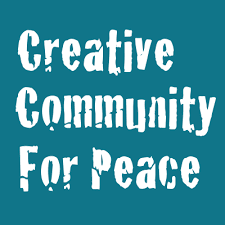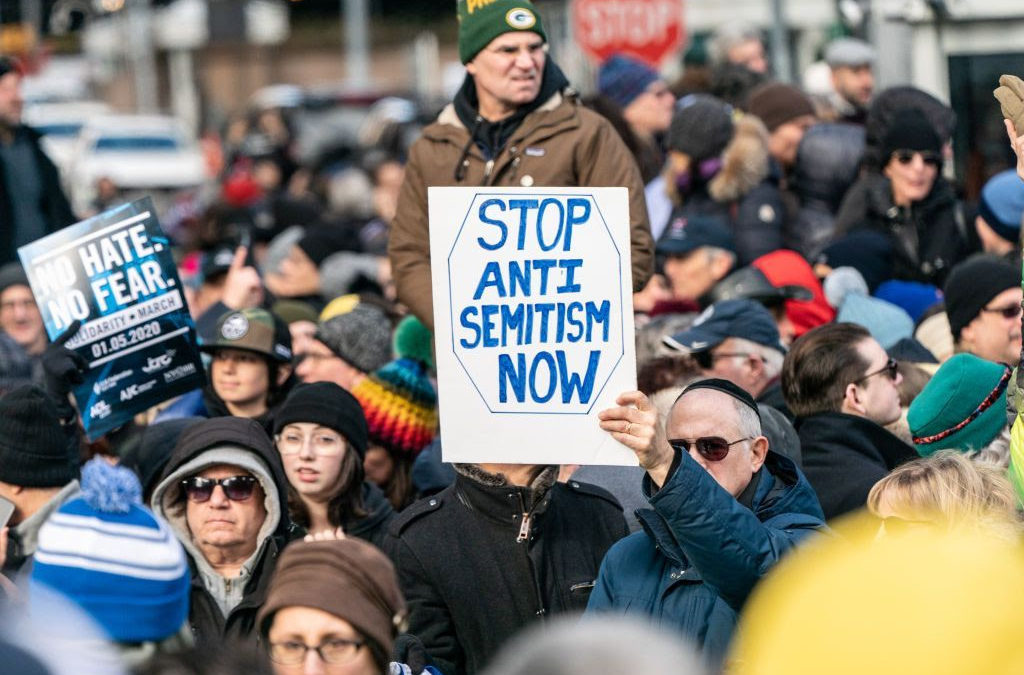If there was ever any doubt as to whether the BDS movement against Israel was anti-Semitic, the COVID-19 pandemic has put that to rest.
The pandemic has brought with it a wave of anti-Semitism that stretches the globe. Dubbed “coronasemitism,” anti-Semitic incidents related to the virus have been reported in the United States, the United Kingdom, Australia, France and throughout the Middle East. These incidents reinforced the systemic anti-Semitism found in countries such as Iran and Turkey, and evidences the broader history of Jews being scapegoated in times of trouble, whether it was plagues and epidemics, financial crises or tragic events like 9/11.
While the BDS campaign brands itself as a peaceful social-justice movement, it’s really a political movement whose members often peddle in anti-Semitism. Recent social-media posts from BDS supporters during the coronavirus crisis are virtually indistinguishable from those of white supremacists and others who subscribe to Jewish conspiracy theories. Merely replace the word “Jew” for “Zionist” or “Israel,” and it becomes evident that the BDS movement traffics in classic anti-Semitic tropes, whether modern-day blood libels, ritual murder accusations or happy merchant characterizations. We see BDS supporters depicting Jewish Israelis as viruses and diseases, and pushing conspiracy theories of Israel and Jews profiting from the crisis, while rejoicing in Jewish Israeli deaths.
In the same spirit of Hitler’s 1920 Salzburg speech, which spoke of “Jewish contamination” and Jews “poisoning the nation,” Abbas Hamideh, co-founder of the BDS organization Al-Awda, released a series of tweets characterizing Israel as a “zionavirus” citing “Jewish complicity in the coronavirus pandemic,” and celebrating the closure of The Jewish Chronicle, the oldest Jewish newspaper in the world that recently went into liquidation—before it was saved by a donor—due to the pandemic.
Another proponent of BDS absurdly accused Israel of “faking cases,” claiming that “the Zionists are behind spreading covid19.”
When white-supremacist leader David Duke tweeted, “Does President Donald Trump have coronavirus? Are Israeli and the Global Zionist elite up to their old tricks?” a BDS supporter responded, “Israel itself is more dangerous for human species than corona virus.”
This same user posited, in a reply to a tweet by conspiracy-theorist and Holocaust-denier David Icke that Israel is spreading the virus. The BDS supporter stated, “Isn’t it interesting that Israel is the only place they haven’t found even one single case of this virus,” despite the thousands of confirmed coronavirus cases in the country and hundreds of deaths.
Singling out the Israel, the world’s only Jewish state, for condemnation, Ariel Gold, national co-director of leading BDS organization CodePink tweeted: “Israel is culpable for every coronavirus death in Gaza,” deliberately ignoring the border that Gaza shares with Egypt and the restrictions Egypt imposes on the enclave as well.
Maria Cristina Gutierrez, another supporter of the boycott movement, posted on Facebook that in addition to being behind 9/11, “zionista and the united states […] created this coronavirus in a lab.”
“There is a coronavirus killing babies in Palestine, the virus is called the Zionist state of Israel,” she added.
BDS activist Ratiba “Tibou” Abdessemed similarly labeled Israel a “lethal” virus and accused Israel of facilitating the spread of COVID-19.
Resurrecting the medieval Jewish blood libel, Ratiba has referred to Jews as “bloodsuckers,” questioned the number of Jews killed in the Holocaust, retweeted an article from a notorious anti-Semite and Holocaust-denier blaming Orthodox Jews for the spread of the virus, and claimed that “world Jewry was the boss” of Washington, D.C.
Finally, Ratiba charged Israel with creating genetically modifying viruses designed to attack non-Jews.
On Facebook, BDS supporter Sabrina Porras blamed the “United Zionist snakes” for COVID-19. Ms. Porras had previously employed the classic conspiracy theory about the Rothchilds (i.e., “Jews”) controlling the world, claiming in 2016 that they rigged the American presidential elections.
BDS supporter and English teacher Ramez Alashqar called Israeli soldiers the “worst virus in the world.”
And even though Israel’s synagogues have closed its doors in light of the pandemic, proud BDS activist Saskia Whitfield—a member of a Facebook group called “Did the Holocaust Really Happen?”—peddled the falsehood that “the entire west is banned from meeting with more than 5-10 people, UK is only two! Yet I read yesterday that the synagogues in Zitrael are exempt from this rule … could speed things up there.”
Just as we have seen white supremacists rejoice in the number of Israeli cases and deaths in response to news of the first Israeli death due to COVID-19—that of 88-year-old Holocaust survivor Aryeh Even—BDS supporters took to twitter to either celebrate or express their indifference.
“Finally good news,” wrote one BDS advocate.
The boycott movement’s nefarious attempt to hide their true motives by merely replacing the word “Jew” with “Zionist” in some of these instances is not only troubling, but also a form of gas-lighting, when 95 percent of American Jews support Israel and thus Zionism.
Members of the BDS movement have a long documented history of anti-Semitism, which is why the German Parliament, the French National Assembly, the American Congress and a U.N. Special Rapporteur have all condemned the movement. Yet boycott activists continue to spread their vitriol during this global crisis. At a time when the world needs to join together and put political differences aside, they prefer to sow division and corrode civility.
Earlier this month, the U.N. Special Rapporteur on freedom of religion or belief, Ahmed Shaheed, admirably declared that “we must collectively reject anti-Semitism and other forms of intolerance and discrimination now.” Now, more than ever, we need to hold those to account who do not heed his call.
Ari Ingel is the director of Creative Community for Peace, a nonprofit entertainment industry organization that represents a cross-section of the creative world dedicated to promoting the arts as a means to peace. Karys R. Oschin is the organization’s manager of strategic research and writing.

